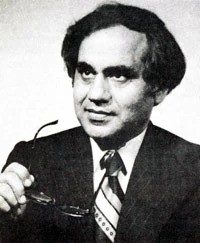7402 Colshire Dr, Suite 1
Mclean, VA 22102, USA
Visa Vakeel
Leading Indian-American Immigration Lawyer Announces Reduction In His Legal Fees
My office is under renovation and our website is being rebuilt. We apologize for any inconvenience. As a token of our appreciation for the continued support and forbearance of our clients, we hereby announce a discount in our legal fees in accordance with our new fee schedule.
In accordance with our new fee schedule, our fee for handling green card applications for both parents filing together is $3,120 (previously $3,900). For a single parent, the new fee is $2,400 (previously $3,000); for fiancé or marriage visas, the fee is reduced to $2,400 from $3,000. Fees for children and siblings vary according to case complexity, but will also reflect the new fee structure.
For naturalization applications, the new fee is $1,280 instead of $1,600.
Clients pay an additional $75 for out-of-pocket expenses such as photocopying, postage, and courier services—compared to the prevailing industry average of $100 to $150.
As before, our entire practice is devoted exclusively to handling Relative Petitions. Focusing on a single category of cases has given us invaluable insight into how Immigration Examiners evaluate petitions. We anticipate examiner needs and highlight the most effective supporting documentation. Even the best-prepared cases benefit from follow-up; we track and pursue our cases to bring them to a timely conclusion.
Our work on Relative Petitions often involves dealing with other agencies responsible for specific aspects of immigration applications, such as the National Visa Center (NVC) in New Hampshire and U.S. Consulates worldwide. We maintain strong working relations with these offices, both directly and through their Washington, D.C. headquarters.
Being based in Washington gives us a unique advantage. We meet with senior officials at USCIS headquarters and the State Department, which oversees field immigration offices and consulates abroad. These contacts can be immensely helpful when your case requires additional support.
Last year, we enlisted the State Department to contact our consulate in an African country that refused telephone calls. Our client, a widow of a U.S. citizen abroad, had only days left before her deadline. With timely assistance, the Consulate accepted her paperwork, and she received her immigrant visa in four months.
In a similar case, we sought Congressional help to obtain a travel document for an elderly client stranded in India with an expired green card.
When the Dutch bride of a disabled U.S. war veteran faced long delays securing a consular appointment in Amsterdam, we provided a note from the veteran's surgeon explaining the urgency; she received her appointment within a week.
We believe that when a petition is based on verifiable facts, the key is to approach the officer handling your case—or their supervisor—either on your own or with assistance from a Washington contact.
Our street address, email address, and telephone numbers remain unchanged.
Arun K Chhabra

Featured Story in India Today
July 1–15, 1979
LETTER FROM WASHINGTON: Every year, thousands of immigrants, including an estimated 20,000 Indians, pour into America. Most of them, however, find themselves falling foul of the complex immigration laws that exist there. A majority of the Indian immigrants, faced with the threat of being deported, turn to a man who is acquiring a legendary reputation for helping immigrants in trouble – Arun Chhabra. INDERJIT BADHWAR reports. Page 56.
Read the full article →